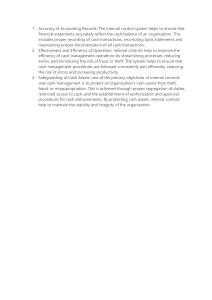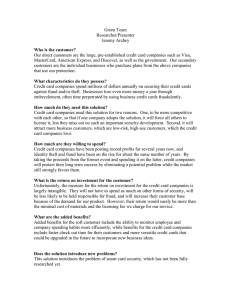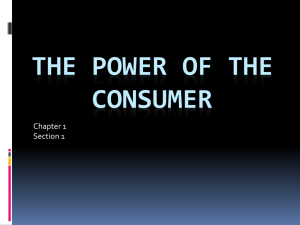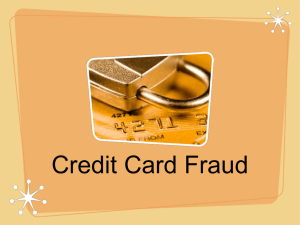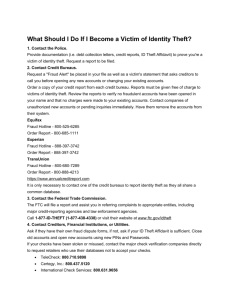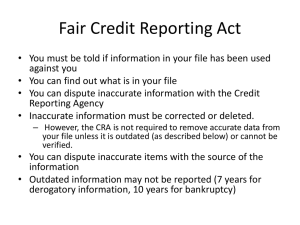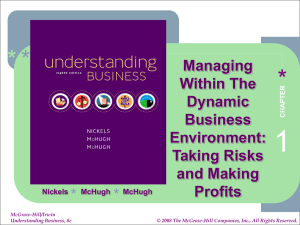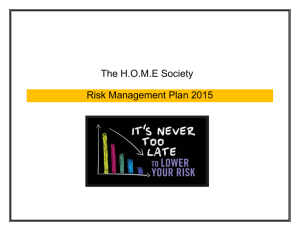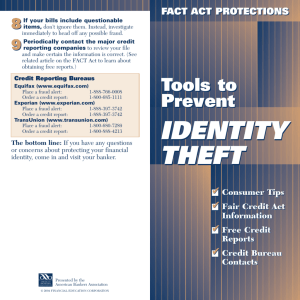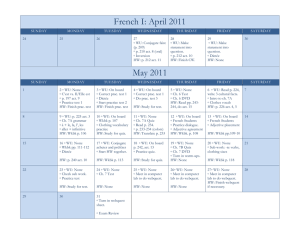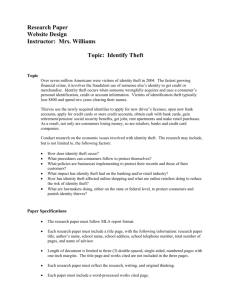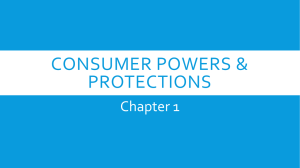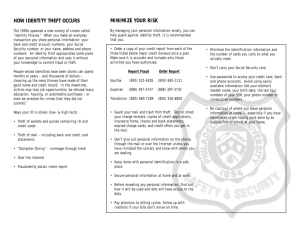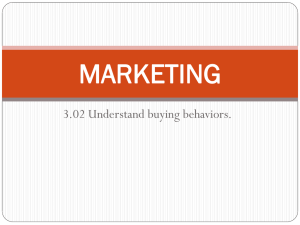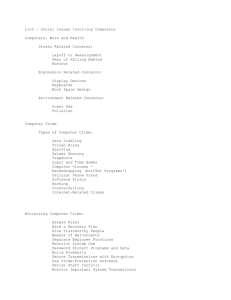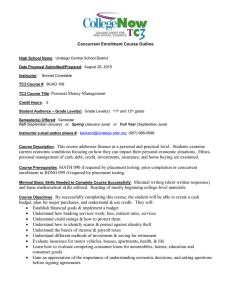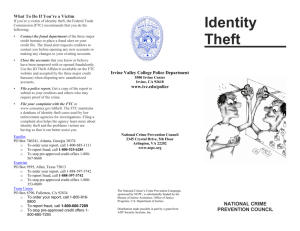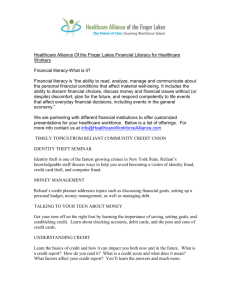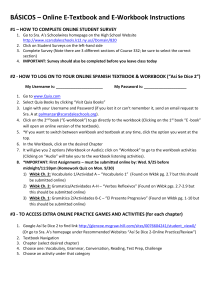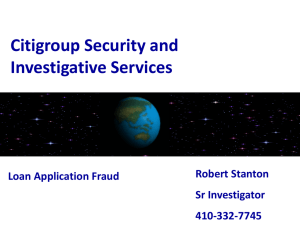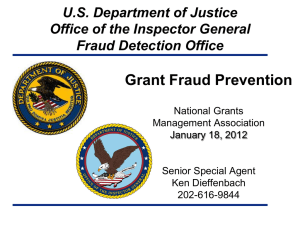Chapter 1
advertisement
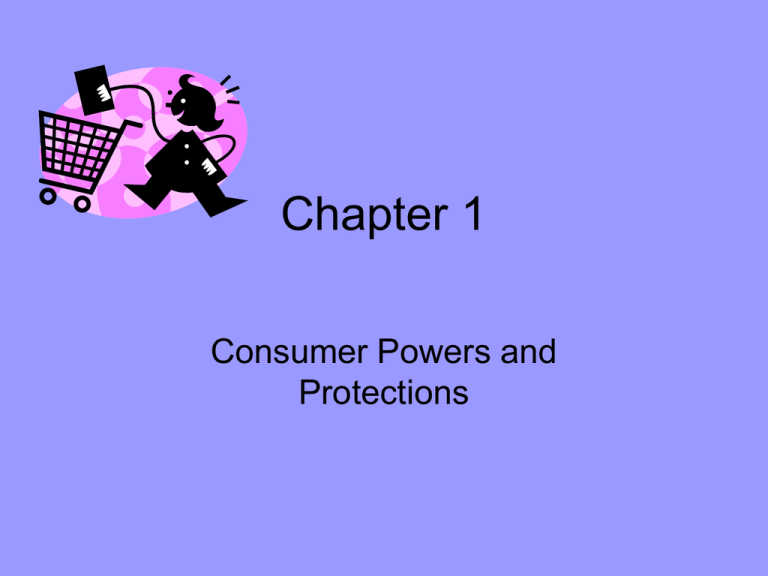
Chapter 1 Consumer Powers and Protections 1.1 • Consumer = is someone who uses goods and services • Goods = physical objects that are produced (cookies, jeans) • Services = actions that are performed for someone (haircut) Your Economic Role • Consumer • Worker • Citizen • How are these related??? Consumers Have POWER • Collectively our purchasing decisions affect which goods and services are produced. • Example- consumers buy lots of SUV’s, they make more, hire more workers, more people earn more money, etc. etc. • Marketplace= all of the goods and services available for sale to general public • Retailers= sell directly to the consumers (Wal Mart) • Teens spend $172 BILLION Yearly Technology • • • • • Changes how we buy things TV Internet Shop and Compare from home! Easier to buy on impulse Effective Consumers • • • • • Set goals Think critically Do research Manage every day finances Plan for financial security 1.2 The Consumer Movement • Power of the consumers as a group can balance the power • Consumer advocates= people or groups who work on behalf of consumers • Page 27- 28 pioneers of the consumer movement • Consumer Rights and Responsibilities Page 29 <pg 15 wkbk read aloud> • Federal Laws Page 30 • Federal Agencies Page 31 <pg. 17 wkbk., poss. posters> Other consumer Assistance • Consumer Groups- focused on education, protection, and advocacy • Consumer Testing Agencies and PublicationsConsumers Union (CU) an independent consumer testing agency, buy products and test them Consumer Reports Magazine • Better Business Bureau- offers reports on local business that consumers report • Consumer affairs department • Consumer action panels • Media 1.3 Safeguarding your privacy • Identity Theft= illegal use of a persons personal information • Social Security Number- unique 9 digit number to keep track of your earnings DO NOT GIVE OUT UNLESS NECESSARY How Does it Happen?? Pg 35 • Preventing Identify Theft Handle mail with care Keep personal items locked Safeguard passwords Do not give out personal info Cut up old credit cards, statements,etc. • If your Identity is stolen File a report with police Notify banks and credit card companies Alert agencies Data Collection and Privacy Issues • Some info is needed to process an order • Some companies will keep that info • Some might sell it Online Profiling • When companies collect info about web sites consumers visit and then use that info to predict what consumers might buy in future • Cookies- small files stored on your computer that allows web sites to remember info about you <debate the issue> 1.4 Recognition of Fraud and Deception • Deceptive Advertising- likely to mislead consumers through false statements, omitted info, etc. • Bait Switch – retailers advertise a product that it has no intention of selling in hopes the consumer will buy something else • False promise of free gifts • Deceptive pricing – saying a “sale” when it is no better than every day price • Hidden Prices Fraud • Fraud- deceitful conduct designed to manipulate another person for some gain. • Pyramid scheme – illegal get rich quick plan • Chain letters • BUYER BEWARE 1.5 Resolving Consumer Problems • Registering a complaint State the problem Have receipts What do you want to happen? Go to store or write letter see page 48 • Legal actionsSmall claims court Lawsuit Class action suit
